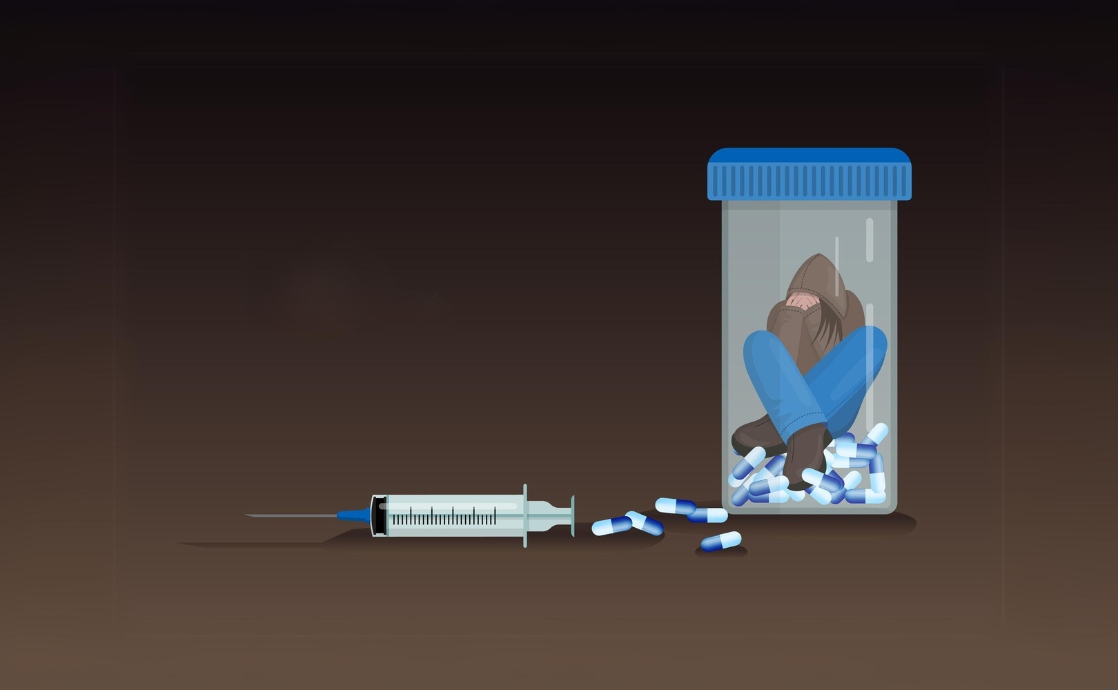Throughout history, societies have grappled with the issue of drug addiction. Is it a moral failing, a criminal act, or a disease that warrants compassion and understanding? The Bahá’í teachings offer a unique perspective on this contentious issue, inviting us to explore the complexities surrounding addiction with empathy and insight. One might ponder: can a simple shift in perception effectively transform societal approaches to drug use and addiction?
Understanding the nature of drug addiction is pivotal, especially within the framework of Bahá’í teachings. The Bahá’í Faith emphasizes the inherent dignity and worth of every individual, thus framing the conversation around addiction as one that integrates a holistic view of mankind. At its core, addiction can be construed as both a reaction to societal conditions and an individual health crisis. Consequently, the Bahá’í perspective encourages us to engage with addicted individuals from a place of compassion rather than condemnation.
First, it is essential to contextualize addiction within the broad spectrum of human experience. The Bahá’í writings suggest that personal and societal factors significantly contribute to the state of addiction. This complexity challenges the conventional dichotomy of viewing addiction strictly as a crime versus a disease. Consider the societal structures that might contribute to substance abuse: poverty, lack of opportunities, and insufficient mental health care can strip individuals of agency, ushering them into a cycle of dependency — a phenomenon that deserves understanding rather than stigma.
Second, the idea of addiction as a “disease” is an evolving narrative, grounded in medical and psychological research. It invokes the notion of addiction as a condition that alters brain chemistry and behavior, thereby requiring treatment rather than censure. The Bahá’í Faith aligns with this understanding, advocating for comprehensive treatment and rehabilitation instead of punitive measures. The principle of justice emerges here, highlighting that society must treat individuals with fairness by providing them the resources and support they need to reclaim their lives.
Moreover, the Bahá’í teachings emphasize the importance of education as a preventive measure against addiction. Aligned with the concept of the “healing of humanity,” educational initiatives targeting young people play a crucial role in shaping perceptions about drugs, their effects, and the implications of addiction. Such initiatives can foster resilience and empower youth to make informed choices, potentially lowering the prevalence of substance abuse in communities. Imagine if, instead of punishment, a society fostered open dialogues about the perils of addiction, creating a culture that prioritizes well-being.
In addition, there exists a need for a paradigm shift in how we conceptualize legal frameworks surrounding drug use. The Bahá’í perspective challenges the prevailing punitive approaches. Rather than focusing solely on criminalization, an effective strategy could encompass restorative justice principles, which seek to repair the harm caused by criminal behavior. This approach underscores accountability while recognizing the role of social and environmental factors in drug-related offenses. Could embracing this perspective lead to a more humane and just society? Indeed, the answer lies in collective will and the readiness to view addiction through a compassionate lens.
The Bahá’í Faith also underlines the integration of spiritual health with physical and psychological well-being. Spiritual teachings promote self-control and balance, which are instrumental in overcoming addiction. A holistic approach that encompasses interfaith dialogue and community engagement can propagate these values, allowing individuals to draw upon spiritual resources to combat addiction. Envision communities where collective prayer, meditation, and support systems flourish — could these not serve as bastions of healing for those ensnared in addiction?
Equally significant is the role of families and communities in the recovery process. The Bahá’í teachings advocate for unity and harmony, asserting that supportive familial structures can serve as a refuge for individuals navigating addiction. Family members are often on the front lines, battling stigma alongside their loved ones. Empowering them with skills and knowledge about addiction can fortify support networks, fostering an environment conducive to healing. Is it not compelling to consider that the power of community can counteract individual struggles? Indeed, mutual understanding and solidarity might illuminate pathways to recovery.
As we traverse the complex landscape of drug addiction, the Bahá’í teachings illuminate a critical path toward understanding. The classification of addiction as crime or disease is indeed multifaceted, requiring a conscientious approach that embraces the totality of the human experience. By fostering compassion, dismantling stigma, advocating for education, and championing holistic care, society can navigate this challenge more effectively.
Ultimately, societal evolution hinges upon our collective attitudes toward addiction. It invites a compelling question: Can empathy redefine the narrative surrounding drug addiction? By exploring the interplay of understanding and action, the Bahá’í perspective emboldens us to envision a world where healing is prioritized over punishment. Thus, we may unravel the chains of addiction and foster a culture of compassion, resilience, and hope.
